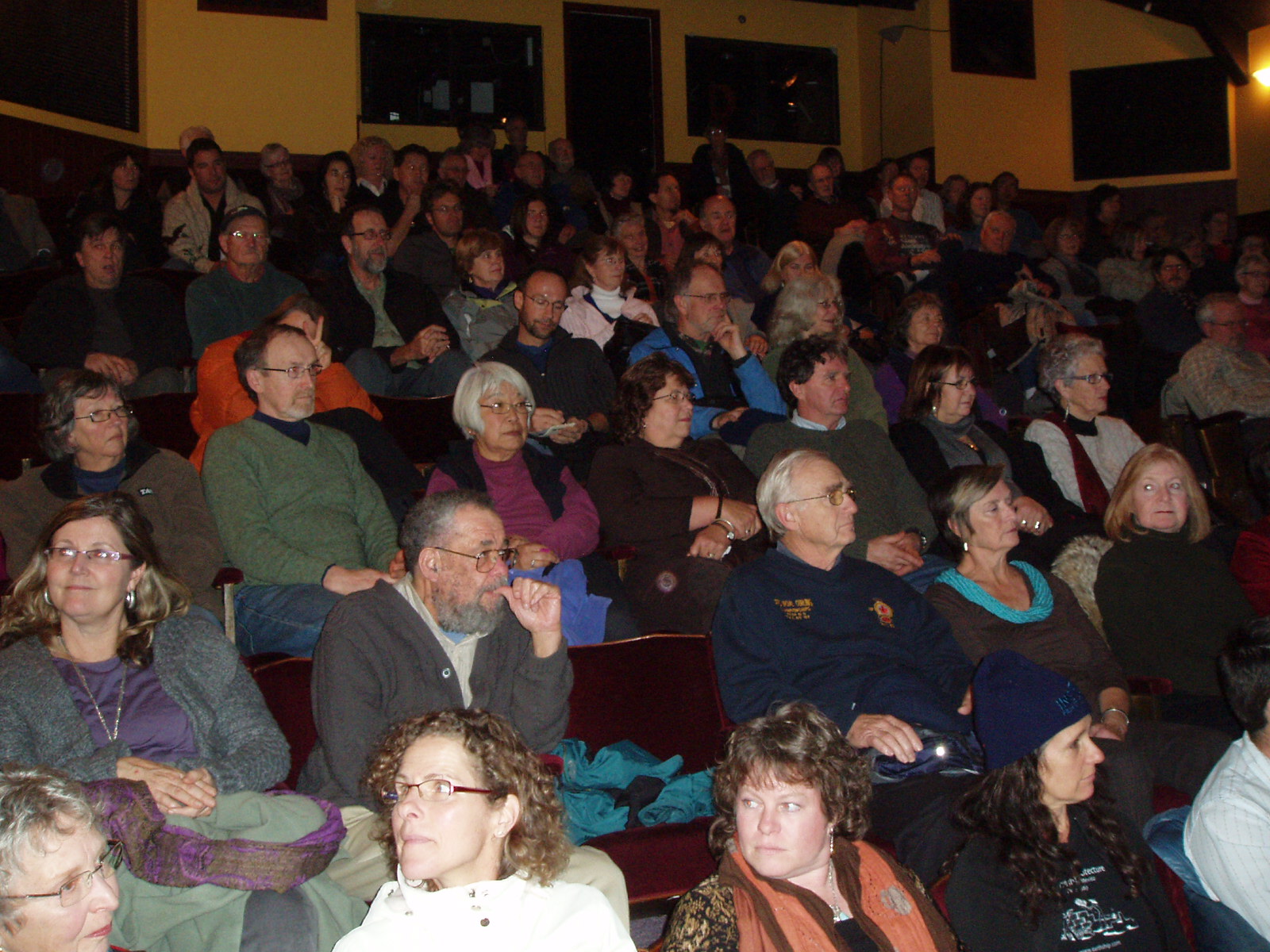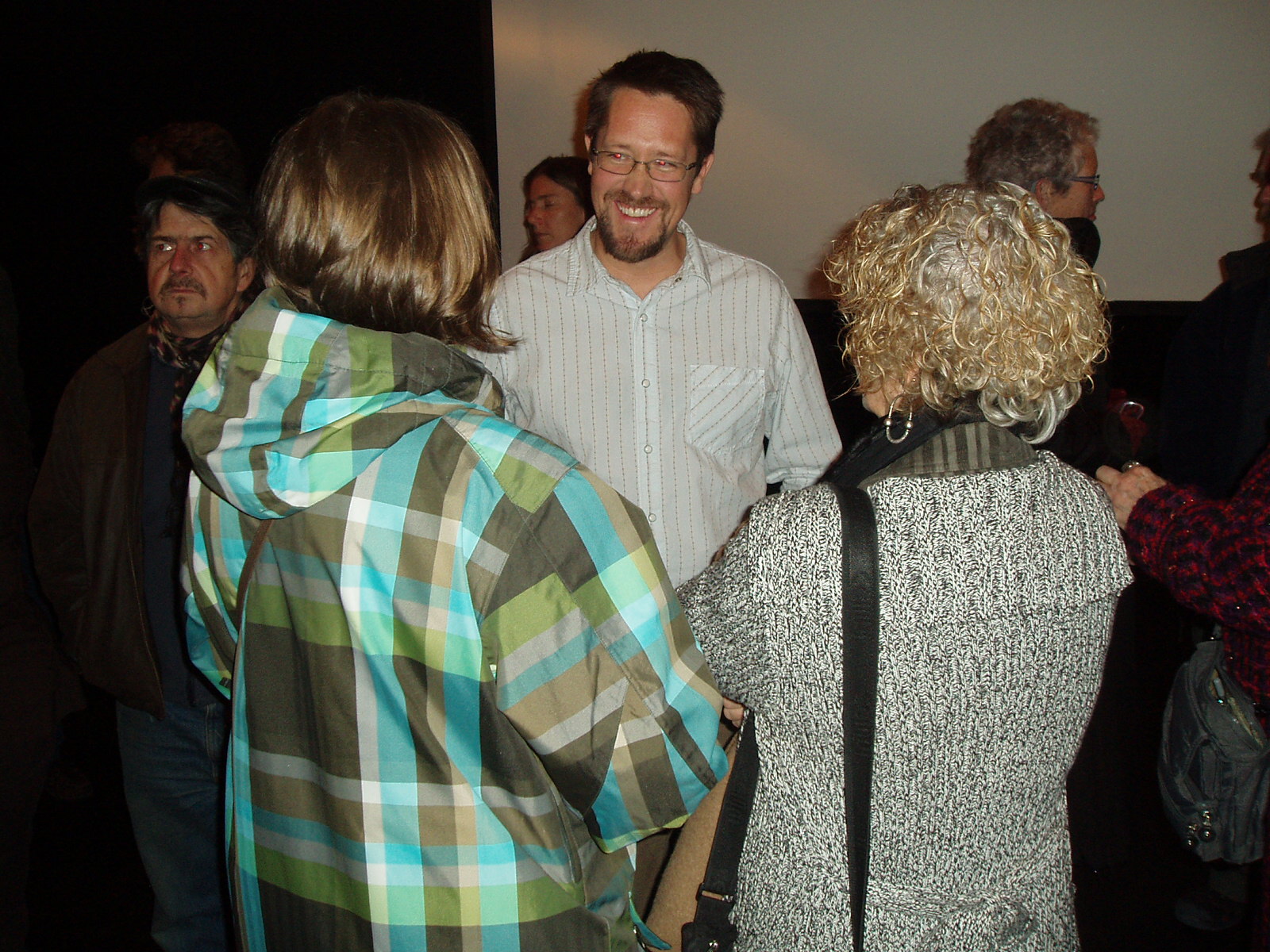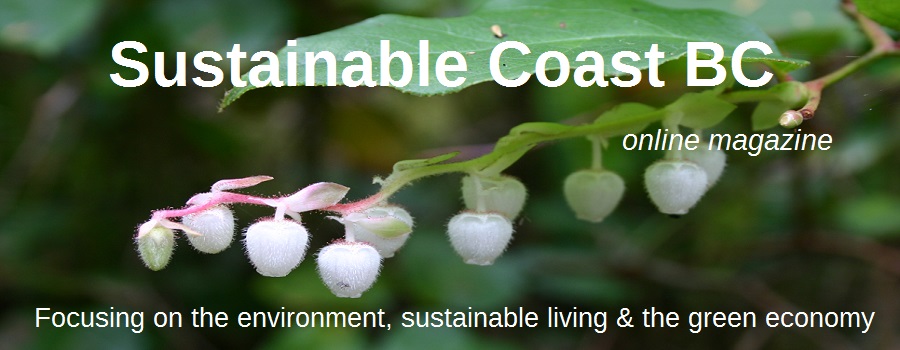News
An enthusiastic audience gave director David Lavallee a standing ovation after the showing of his new documentary film, "White Water, Black Gold", the third film in the Green Film Series sponsored by Sustainable Coast Magazine and The Gibsons Green Team. It is a film that should be seen by everyone. This is Lavallee's first movie. He says he had never done anything like this before. But he has put together a moving and informative film.
The film is a record of Lavallee's three-year journey following an imaginary drop of water from the Columbia Icefields in Jasper National Park through the tarsands oil project in Alberta. Lavallee, a mountaineer and guide and raised in Alberta, had noticed huge changes in the glaciers over the past few years due to climate change and decided to find out for himself about the tarsands and their effects.
The movie begins with a dramatic scene when Lavallee falls into a crevasse in an ice field he has traveled many times and one that has never had them. Later we join him and his travelling companions as they canoe along the Athabasca River and the bitumen extraction operations.
We see first-hand the toxic waste ponds, the affected animals and fish and most dramatically, the First Nation people that live off the river and land. An emotional moment comes when band members confront the oil company representatives about the contamination and high cancer rates due to toxic leakage into the water while one representative says she hopes they enjoyed the KFC dinner they provided. Lavallee interviews scientists, oil company representatives, politicians, environmentalists and First Nations leaders to try to get answers. He is followed by security guards and told to stop filming. In the end he and his audience are disgusted with the state of the land, the politics involved and the devastation to the people and resources of Canada.
Lavallee interviews scientists, oil company representatives, politicians, environmentalists and First Nations leaders to try to get answers. He is followed by security guards and told to stop filming. In the end he and his audience are disgusted with the state of the land, the politics involved and the devastation to the people and resources of Canada.
 Lavallee interviews scientists, oil company representatives, politicians, environmentalists and First Nations leaders to try to get answers. He is followed by security guards and told to stop filming. In the end he and his audience are disgusted with the state of the land, the politics involved and the devastation to the people and resources of Canada.
Lavallee interviews scientists, oil company representatives, politicians, environmentalists and First Nations leaders to try to get answers. He is followed by security guards and told to stop filming. In the end he and his audience are disgusted with the state of the land, the politics involved and the devastation to the people and resources of Canada.While the film could have ended there with a rather depressing and hopeless feeling, Lavallee brings his audience an honest and open ending. Stating that he recognizes that he is also part of the problem, he talks about our own power to bring change to our lifestyles and to environmental policy in Canada.
The evening ended with a discussion between the audience and the director. Much was focused on the proposed Enbridge pipeline that will travel from the tarsands across BC to Kitimat. There super tankers are to pick up the bitumen oil and carry it along the BC coast to Asia.
 Many in the audience signed a petition asking the Parliament and BC Legislature to "use whatever means are available to stop the expansion of the oil supertanker traffic through BC's coastal waters". The petition campaign is organized by the Dogwood Initiative.
Many in the audience signed a petition asking the Parliament and BC Legislature to "use whatever means are available to stop the expansion of the oil supertanker traffic through BC's coastal waters". The petition campaign is organized by the Dogwood Initiative.Door prizes were given out after the discussion. Donors Aaron and Laura Joe of Salish Soils were in attendance for this film. Salish Soils and Eco Safe Zero Waste have supported the series by donating door prizes at each showing.
The Green Film Series will continue next spring with more important environmental films coming in Febuary, March and April. The new series has been very popular and is a special project of the Sunshine Coast Film Society with Sustainable Coast Magazine and The Gibsons Green Team.
